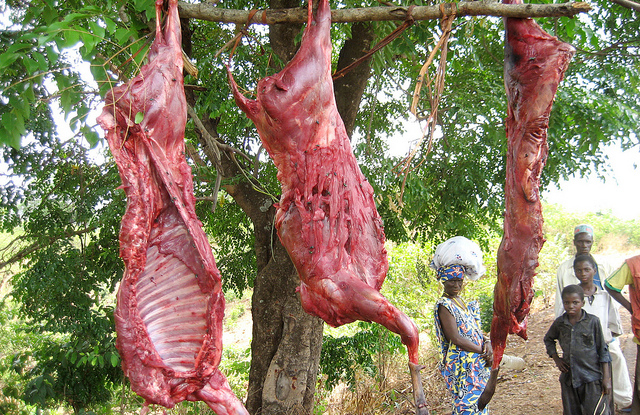A new study published in the journal Conservation Letters has found that COVID-19 did not significantly reduce bushmeat consumption in rural Kenya and Tanzania.
The study, which surveyed 299 people in communities on the Kenya-Tanzania border, found that only 30% of respondents reported lower consumption of bushmeat because of the pandemic.
Nearly 70% said that COVID-19 did not impact their levels of bushmeat consumption, with some even reporting increased consumption.
Researchers attribute this to the increased food costs caused by regulations to control the COVID-19 pandemic, which made many people seek protein sources cheaper than beef, mutton, chicken and other domesticated animal meats.
The study also found that levels of education played a critical role in understanding zoonotic disease transmission. Respondents with higher levels of education were more aware of the risks of disease transmission. Nearly 80% of respondents learned about COVID-19 from mass media sources.
Zoonotic diseases are those that originate in animals—be they tamed or wild—that then mutate and ‘spill-over’ into human populations.
Two-thirds of infectious diseases, from HIV/AIDS, which originated in chimpanzee populations in early 20th century Central Africa, to COVID-19, which is believed to have originated from an as-yet undetermined animal in 2019, originate in animals.
The study’s authors say that the findings highlight the need for more education and awareness about the risks of bushmeat consumption, as well as the need for sustainable hunting and marketing practices.
“While hunting wild animals for their meat has been a crucial activity in the evolution of humans and continues to be an essential source of food and income for millions of indigenous and rural communities globally, wildlife conservationists rightly fear that excessive hunting of many wild species will cause their demise,” said Julia Fa, a professor at the University of Manchester and a fellow at CIFOR-ICRAF.
“To ensure continued use of wildlife resources by those who depend on it, sustainable hunting, marketing and consumption practices must be implemented. Local communities need to remain or become custodians of the wildlife resources within their lands, for their own well-being as well as for biodiversity in general.”
In conclusion, the study highlighted the need to understand better how local communities perceive zoonotic and other disease risks associated with wild meat hunting, selling and consumption, especially in light of the COVID-19 pandemic.

